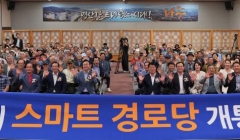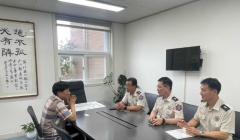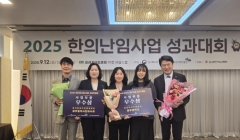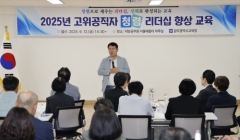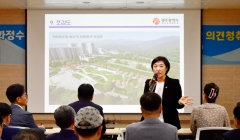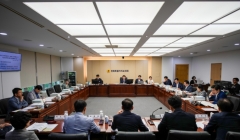편집 : newscheaner@kakao.com
대한민국 헌법 제10조가 보장한 이 기본권은 어느 누구에게나 평등하게 적용되어야 한다.
그러나 최근 우리 사회는 이 '인권'이 특정 집단, 특정 상황에서만 유독 강조되고, 정작 가장 보호받아야 할 피해자와 국민에게는 소홀히 적용되는 현실을 마주하고 있다.
■ 사건: 구속영장 발부에도 “건강 문제” 주장하며 병상에서 수사 거부
지난 2025년 7월, 반국가범죄 혐의로 구속영장이 발부된 인물 A씨는 체포 직후 “지병으로 인해 조사를 받을 수 없다.”며 병원에 입원했고, 검찰과 경찰은 무려 2주 동안 대면조사조차 하지 못했다.
담당 의료진은 “가벼운 고혈압 및 스트레스성 증상”이라고 밝혔으나, 피의자의 주장을 근거로 한 인권단체의 압박 속에서 수사는 지연됐다.
한편, 피해자로 지목된 공공기관은 계속되는 언론 취재와 시민 불신 속에 파행을 겪었다.
■ 사건: 흉기 난동범, “인권” 이유로 얼굴 가리고 이송…피해자는 트라우마로 고통
2025년 상반기를 충격에 빠뜨린 서울 역삼동 흉기 난동 사건의 피의자 B씨는 체포 후 “초상권 보호와 정신적 충격 우려”를 이유로 신상이 철저히 비공개되었고, 경찰 이송 당시에도 얼굴을 가린 채 언론 노출을 막았다.
반면, 중상을 입은 피해자들과 그 가족들은 범인의 얼굴조차 모르고 공포에 떨었다.
범죄 예방을 위해 신상공개가 필요하다는 여론이 거셌으나, 경찰 측은 “피의자의 인권을 우선 고려했다”는 입장만 반복했다.
이 사건은 “피의자의 인권은 있고 피해자의 인권은 없느냐”는 거센 국민적 반발로 이어졌다.
■ 전문가 인터뷰: “지금의 인권 논리는 선택적 적용…법치주의를 무너뜨린다”
헌법 학자이자 인권정책자문위원 출신인 **김형석 교수(가명, K대 법학전문대학원)**는 다음과 같이 진단한다.
“현행 인권 보호체계는 피의자의 권리 보장에는 민감하면서도, 피해자나 일반 국민의 인권에 대한 고려는 부족한 실정입니다.
특히 건강상 이유로 수사를 거부하는 행위는 의료적 검증과 공적 판단 절차가 반드시 병행돼야 하며, 이를 피의자의 자의에 맡기거나 여론에 따라 좌우되어서는 안 됩니다.”
김 교수는 또한 ‘현실적 법치주의’의 균형을 강조했다.
“피의자의 인권도 중요하지만, 법치주의는 공동체 전체의 질서를 지키기 위한 틀입니다.
공권력이 정당하게 집행되지 못하고, 범죄자가 이를 이용해 수사를 방해한다면, 그것은 인권이 아니라 법의 오남용입니다.”
■ 실질적 법치주의가 요구된다.
이제는 단순한 이념 논쟁을 넘어, 실질적 법치주의의 회복이 절실하다. ‘인권’이라는 명분이 공권력의 집행을 가로막고, 범죄 피의자의 방패가 되어서는 안 된다.
피의자의 얼굴이 가려지고, 범죄의 진상이 흐려지는 동안 국민의 법 감정은 무너지고 있다.
국가는 누구를 위해 존재하는가. 범죄자의 인권을 지키는 데만 급급하다면, 피해자와 국민의 존엄은 누가 보호할 것인가.
인권은 결코 피의자의 전유물이 아니다.
진정한 인권국가는 피해자와 국민, 모두에게 평등한 보호가 주어지는 나라일 때에야 비로소 완성된다.
❙ Editorial ❙
Editor: newscheaner@kakao.com
Law Weakened in the Name of Human Rights: Who Protects the Victims and the Public?
"All citizens shall have the dignity and value of a human being and shall have the right to pursue happiness."
This fundamental right, guaranteed by Article 10 of the Constitution of the Republic of Korea, must be applied equally to everyone.
However, recent developments in our society reveal a troubling reality: the notion of “human rights” is emphasized selectively for certain groups or situations, while those who most need protection—the victims and the general public—are often neglected.
Case 1: Suspect refuses investigation citing “health reasons” despite arrest warrant
In July 2025, an individual (hereafter referred to as Person A) facing charges of anti-state crimes was issued an arrest warrant. Immediately after detention, Person A claimed, “I cannot be interrogated due to a chronic illness,” and was hospitalized. For two full weeks, prosecutors and police were unable to conduct any in-person investigation.
Medical staff reported that Person A suffered only “mild hypertension and stress-related symptoms.” Yet under pressure from human rights organizations that leaned on the suspect’s claims, the investigation was delayed.
Meanwhile, the public institution identified as a victim faced operational disruptions amid continuous media scrutiny and public distrust.
Case 2: Knife attacker’s identity shielded “for human rights,” leaving victims in trauma
In early 2025, the shocking knife attack in Yeoksam-dong, Seoul, involved a suspect (Person B) whose identity was kept strictly confidential for reasons cited as “protection of personal image and prevention of psychological harm.” During police transfer, Person B’s face was also concealed from the media.
The victims and their families, seriously injured, were left in fear, unable to even see the perpetrator’s face.
Public opinion strongly called for disclosure to prevent further crime. However, police repeatedly maintained that the suspect’s human rights were the priority. This sparked nationwide outrage: “Do the suspect’s human rights exist while the victims’ rights do not?”
Expert Opinion: “Current human rights logic is selectively applied and undermines rule of law”
Professor Kim Hyung-seok (pseudonym, K University Law School), a constitutional scholar and former human rights advisory committee member, assessed:
"The current human rights protection framework is sensitive to safeguarding the rights of suspects, yet largely neglects the rights of victims and ordinary citizens. Refusing investigation for health reasons must be subject to medical verification and formal public procedures. It should never be left solely to the suspect’s discretion or swayed by public opinion."
Professor Kim emphasized the need for a pragmatic balance in rule of law:
"While the suspect’s human rights are important, the rule of law exists to maintain order for the entire community. If public authorities fail to enforce the law properly and criminals exploit this to obstruct investigations, this is not human rights—it is abuse of the law."
Restoring Practical Rule of Law Is Essential
The debate has moved beyond abstract ideology: restoring practical rule of law is urgently required. The banner of “human rights” must not obstruct the enforcement of public authority or serve as a shield for criminal suspects.
While suspects’ identities are hidden and the truth of crimes obscured, public trust in the law is eroding.
For whom does the state exist? If the government focuses solely on protecting criminals’ rights, who will safeguard the dignity of victims and the general public?
Human rights are never the exclusive privilege of suspects. A truly human-rights-oriented nation is one in which victims and citizens alike are afforded equal protection.
뉴스채널 newscheaner@kakao.com
 2025.09.14 (일) 08:20
2025.09.14 (일) 08:20














